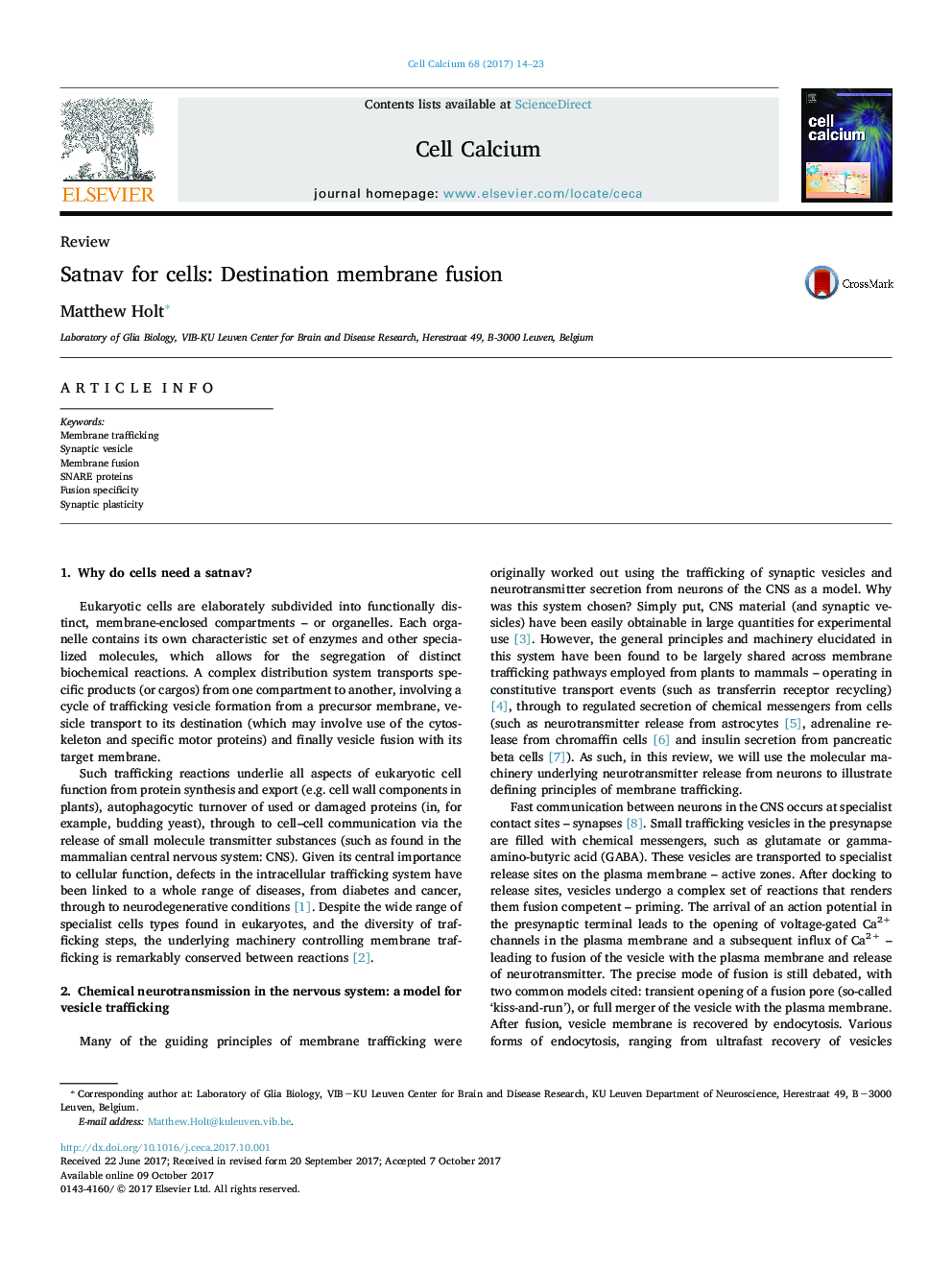| کد مقاله | کد نشریه | سال انتشار | مقاله انگلیسی | نسخه تمام متن |
|---|---|---|---|---|
| 5530529 | 1549308 | 2017 | 10 صفحه PDF | دانلود رایگان |

- Local recycling of synaptic vesicles in neurons is a complex process.
- It involves many steps including fusion both at the plasma membrane and with endosomes.
- Specific mechanisms recruit vesicles to defined sites and promote membrane fusion.
- Regulation of vesicle recruitment and fusion may underlie synaptic plasticity.
- These principles act as a model for other membrane trafficking events.
All eukaryotic cells, from budding yeast to plants and mammals, are elaborately subdivided into functionally distinct, membrane-enclosed compartments - or organelles. Each organelle contains its own characteristic set of enzymes and other specialized molecules, which allows for the segregation of distinct biochemical reactions. A complex distribution system transports specific products (or cargos) from one compartment to another, involving a cycle of trafficking vesicle formation from a precursor membrane, vesicle transport to its destination (which may involve use of the cytoskeleton and specific motor proteins) and finally vesicle fusion with its target membrane.In the central nervous system (CNS), rapid communication between neurons at synapses is achieved using such a specialized trafficking pathway. Small synaptic vesicles move to the presynaptic plasma membrane where they fuse in response to Ca2+ influx, releasing chemical messengers (neurotransmitters) into the synaptic cleft. Vesicles are then recovered, reformed and refilled with neurotransmitter, ready for subsequent rounds of release. This recycling process may involve fusion with, and reformation from, a specific endosomal recycling station.As correct recycling of synaptic vesicles is essential to maintain neuronal signaling, every aspect of the process has been intensively studied. Amazingly, the general principals elucidated in this system are shared across membrane trafficking pathways in eukaryotes, and are largely mediated by common protein-based machineries. Hence, in this article, I will use the example of neuronal exocytosis to illustrate concepts which currently dominate our thinking about membrane trafficking pathways. In particular, I intend to focus on the all-important issue of how specificity in vesicle transport and fusion is achieved.136
Journal: Cell Calcium - Volume 68, December 2017, Pages 14-23